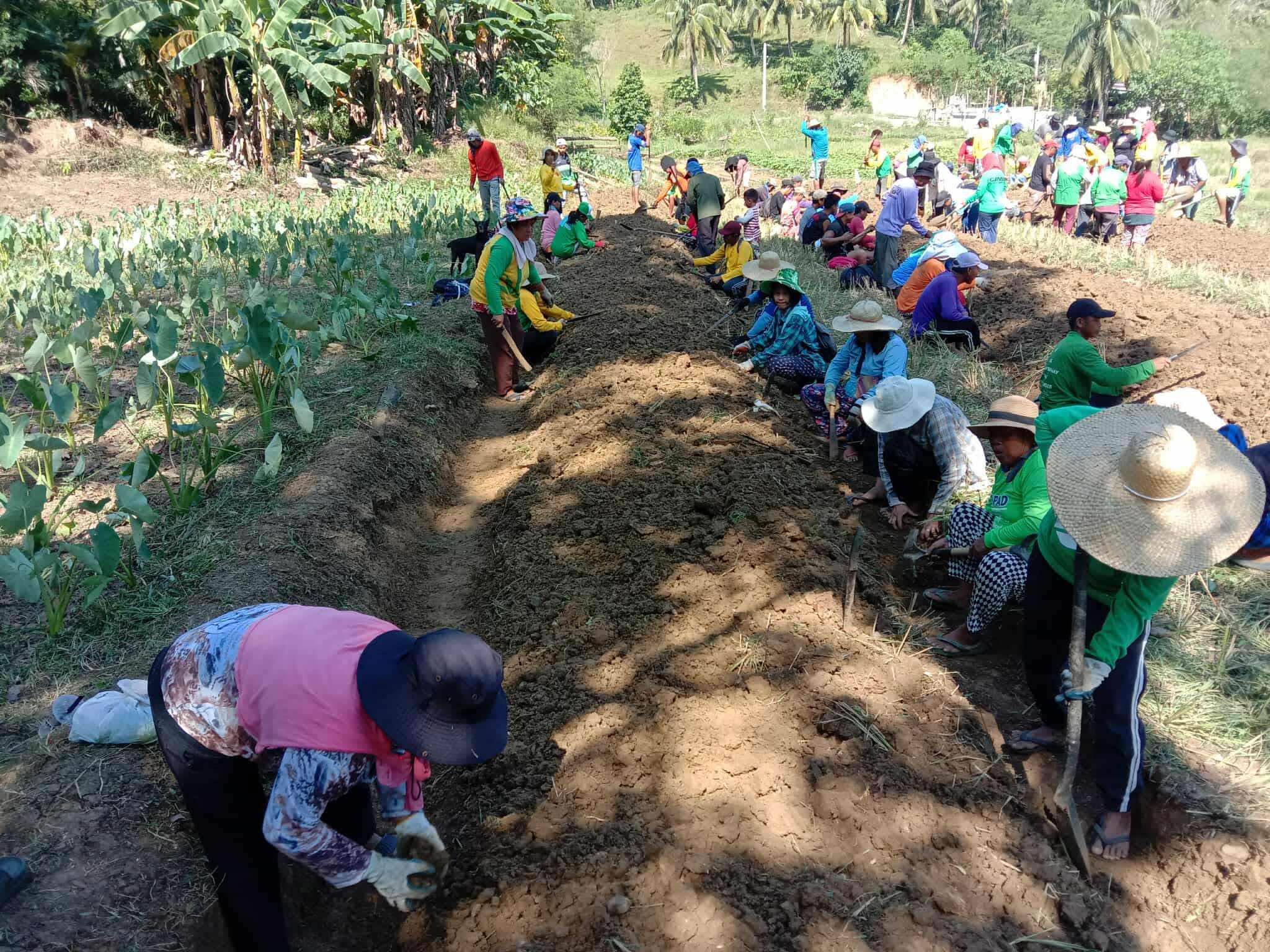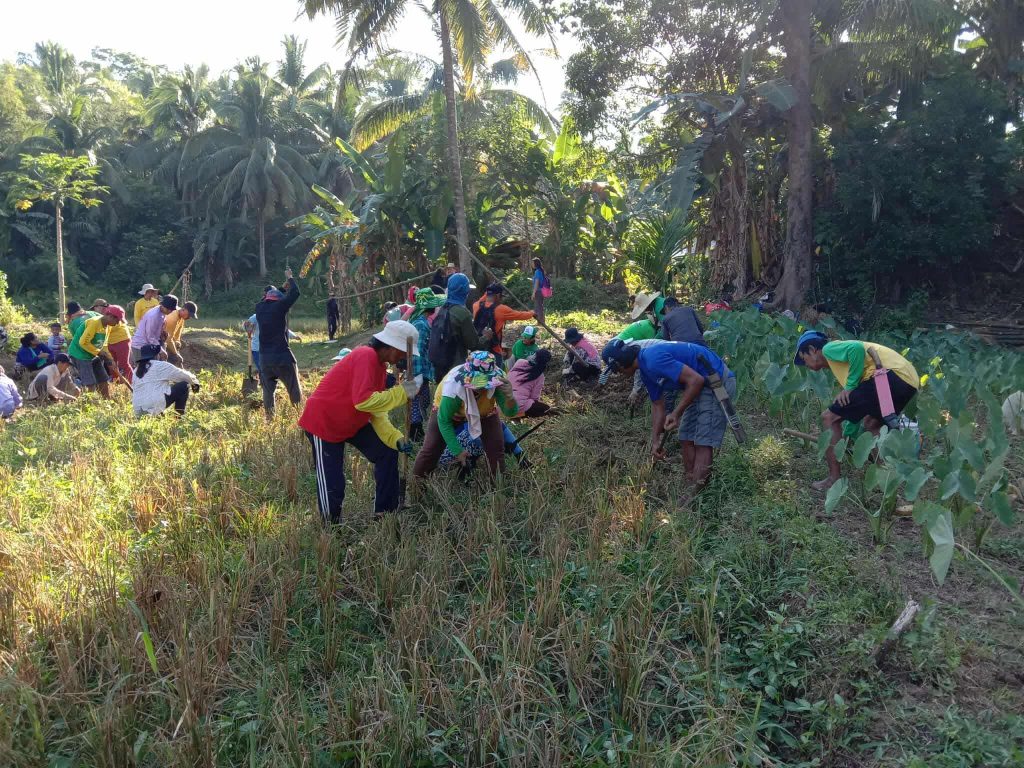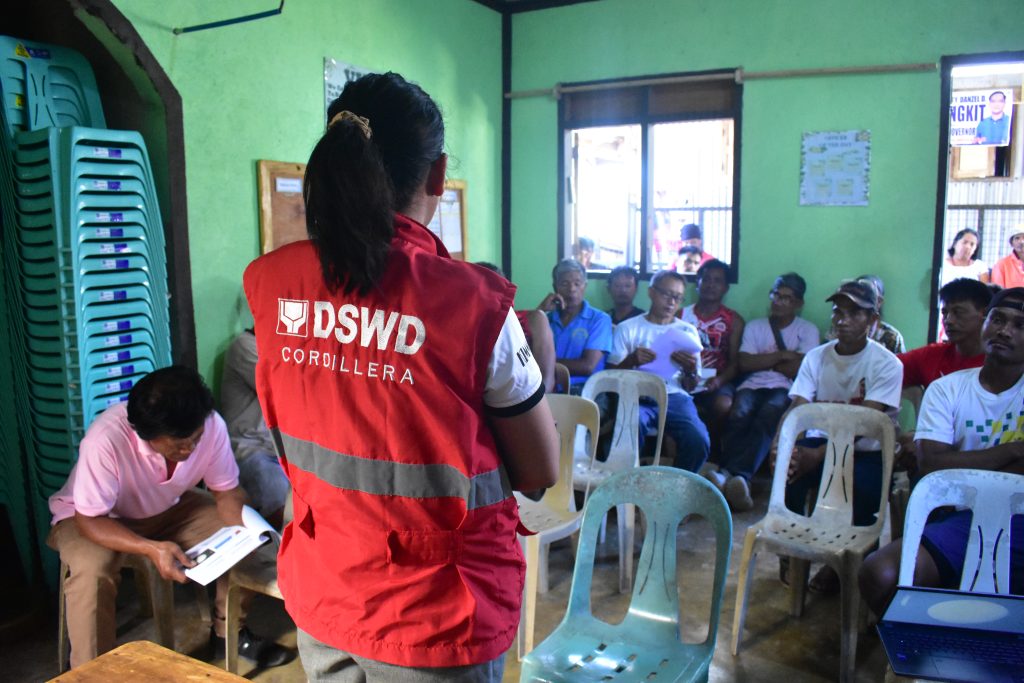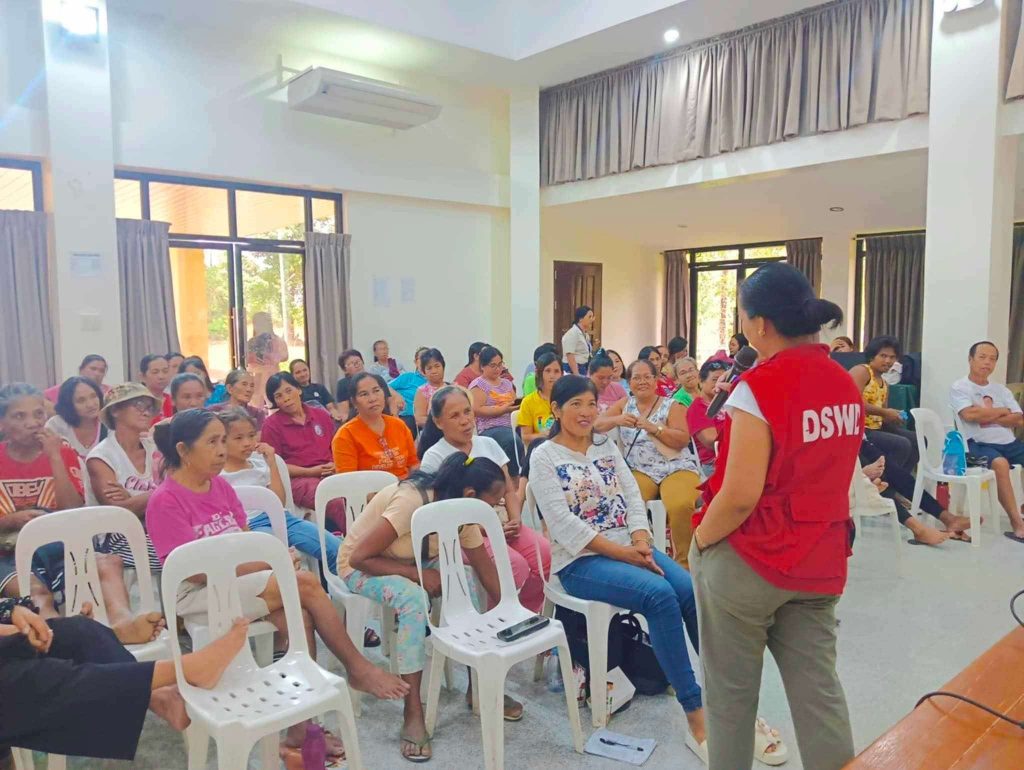
7,050 Partner-Beneficiaries in CAR Train, Earn, and Build Climate-Resilient Food Security Under DSWD’s Project LAWA at BINHI
Cordillera Administrative Region — Communities across the region are taking part in the Department of Social Welfare and Development’s (DSWD) Project LAWA (Local Adaptation to Water Access) at BINHI (Breaking Insufficiency through Nutritious Harvest for the Impoverished), beginning with the rollout of its first stage: Cash-for-Training (CFT). With the goal of building resilience to climate change while providing income and addressing food insecurity to families, this initiative is making its mark in some of the region’s most remote and vulnerable barangays.
Project LAWA at BINHI is part of the DSWD’s broader Climate Change Adaptation and Mitigation – Disaster Risk Reduction (CCAM-DRR) program. It is designed to align with the climate outlook of PAGASA, focusing not just on areas near major river basins, but also where poor households—identified through Listahanan 3—are most concentrated.
Under this project, each partner-beneficiary receives compensation equivalent to the minimum regional wage of PhP 430 per day in exchange for attending 5 days of training sessions or the Cash-For-Training (CFT) and 15 days Cash-For-Work (CFW). In areas where the DSWD has a joint undertaking with the Department of Labor and Employment (DOLE), the wage rate is maintained at PhP 470.
Cash-for-Training sessions are currently ongoing across the region. In Apayao, the municipality of Flora, specifically in barangays Bagutong, Sta. Maria, and Mallig were done with the Stage 1 CFT. In Benguet, several barangays in Atok and Kabayan have also undergone both Stage 1 (CFT) and Stage 2 (Cash-for-Work). Training was also completed in Kibungan, Mankayan, and Tublay. Meanwhile, in Ifugao, beneficiaries in Aguinaldo and Alfonso Lista have finished the training stage. Tanudan and Tinglayan in Kalinga have also wrapped up their sessions. Activities in Abra remain on hold due to ongoing political concerns in the area.
Each province focuses on different interventions: Abra, Benguet, and Mountain Province emphasize alternative water harvesting systems such as fish ponds and cisterns. Apayao and Ifugao prioritize small farm reservoirs (SFR), while in Kalinga, the project supports the development of community irrigation systems.
With 7,050 partner-beneficiaries targeted in the region this year, including 110 LAWA and 123 BINHI sites, the project aims to address two pressing issues: climate change and rural poverty. The work doesn’t stop at training—each stage builds toward the next, equipping locals with knowledge and engaging them in hands-on work that directly benefits their land and livelihood.
### DSWD-CAR Social Marketing Unit –Novelle G. Ongat, Information Officer II |







